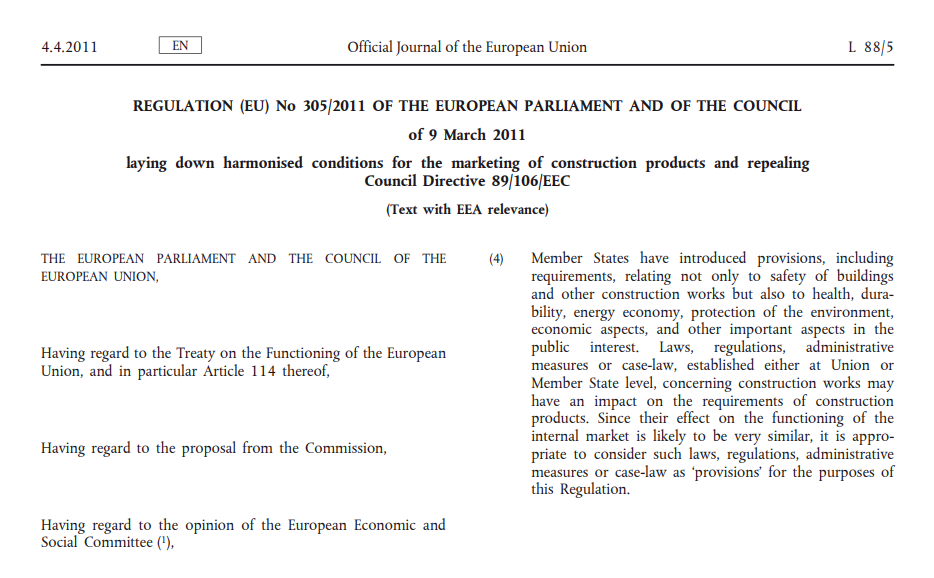European Commission Simplifies Sustainability and Investment Rules: Saving €6.3 Billion and Attracting Up to €50 Billion
The European Commission has unveiled a game-changing package of proposals to simplify sustainability and investment rules, offering businesses an opportunity to save costs and unlock new investment potential. With streamlined reporting requirements, more efficient due diligence processes, and adjustments to the carbon mechanism, these changes promise to transform the EU business environment. But with deadlines on the horizon, the question remains: will businesses rise to the challenge and embrace these opportunities for growth and innovation?

Brussels, 26 February 2025 — The European Commission has unveiled a new package of proposals designed to simplify EU rules, enhance competitiveness, and unlock additional investment capacity. This initiative represents a significant step towards creating a more supportive business environment, allowing EU companies to grow, innovate, and create high-quality jobs.
Aligning Climate and Economic Goals for Business Growth
The Commission’s goal is to align climate ambitions with economic goals, providing a fertile ground for EU businesses to thrive, attract investment, achieve the objectives of the European Green Deal, and fully realise their economic potential. These proposals also aim to reduce the regulatory burden on businesses, particularly SMEs, which will benefit from clearer and more streamlined rules.
By the end of its mandate, the Commission targets a 25% reduction in administrative burdens, with a special focus on SMEs where the reduction is expected to reach at least 35%. The first "Omnibus" package consolidates proposals across multiple legislative areas, simplifying sustainable finance reporting, sustainability due diligence, the EU Taxonomy, the carbon border adjustment mechanism (CBAM), and European investment programmes.
Targeting Large Companies for Sustainability Measures
These measures will concentrate on the largest companies, which have the most substantial impact on the environment, while allowing smaller companies to access sustainable finance for their clean transition. The proposals are expected to generate administrative cost savings of approximately €6.3 billion annually and mobilise up to €50 billion in additional public and private investments for key policy priorities.
Simplifying Sustainability Reporting for EU Companies
The proposed changes will make sustainability reporting more accessible and efficient, focusing particularly on companies subject to the Corporate Sustainability Reporting Directive (CSRD) and the EU Taxonomy. One of the key changes is the removal of around 80% of companies from the scope of the CSRD. This will focus reporting obligations on the largest companies, whose activities have the most significant impact on people and the environment. By narrowing the scope, the Commission aims to make reporting more relevant and targeted.
Postponing Reporting Deadlines for Larger Companies
The reporting requirements for large companies will be postponed until 2028, giving businesses more time to prepare and comply with the new regulations. This delay is designed to reduce pressure on companies, enabling them to meet sustainability reporting obligations effectively.
Adjusting EU Taxonomy Reporting for Smaller Companies
The reporting obligations under the EU Taxonomy will also be restricted to larger companies. Smaller companies will retain the option to report voluntarily, providing them with the flexibility to contribute to sustainable finance efforts. The proposals introduce a new option for businesses to report on activities that are partially aligned with the EU Taxonomy, supporting a gradual environmental transition.
Reducing Complexity in “Do No Significant Harm” (DNSH) Criteria
Changes to the "Do No Significant Harm" (DNSH) criteria will simplify compliance, especially concerning pollution prevention and the use of chemicals across various sectors. This aims to make it easier for businesses to meet environmental standards without unnecessary complexity.
The Green Asset Ratio (GAR) for banks will be adjusted to exclude companies outside the future scope of the CSRD from their calculations. This change will allow banks to focus on entities with greater environmental impact, simplifying their reporting process.
Streamlining Sustainability Due Diligence for Businesses
The Commission has proposed several changes to make sustainability due diligence easier for businesses, reducing unnecessary complexities and associated costs. The new sustainability due diligence requirements for large companies will be delayed until 2028, while the guidelines for implementation will be adopted earlier in 2026, giving businesses sufficient time to adapt.
Focusing Due Diligence on Direct Business Partners
The new rules will narrow the scope of sustainability due diligence to direct business partners, streamlining the process and reducing the cost for companies. This approach allows businesses to concentrate on the most critical relationships in their value chains, ensuring a more efficient application of due diligence.
The requirements for periodic sustainability assessments will be extended to every five years, with the possibility of conducting additional assessments as necessary. This change will reduce the administrative burden on companies, allowing them to focus on key sustainability issues without having to conduct assessments frequently.
Easing the Burden on SMEs
The proposals aim to alleviate the trickle-down effect on small and medium-sized enterprises (SMEs) by reducing the amount of information required from them when large companies map their value chains. This change will help SMEs avoid unnecessary complexity and reduce compliance costs. The proposals include a push for greater harmonisation of due diligence requirements across the EU, ensuring a level playing field for businesses and simplifying compliance across different Member States.
The proposed changes will remove civil liability conditions from the sustainability due diligence framework. However, the rights of victims to compensation will still be protected under the civil liability laws of individual Member States, providing a balance between business interests and protection for those affected by non-compliance.
Strengthening the Carbon Border Adjustment Mechanism (CBAM)
The CBAM proposals aim to make the system fairer and more effective, with changes that address the needs of businesses while strengthening the mechanism’s environmental impact.
Exempting Small Importers from CBAM Obligations
Small importers, primarily SMEs, will be exempt from CBAM obligations under the new proposals. A new threshold of 50 tonnes per importer will eliminate the obligation for around 182,000 importers, or 90% of the total, while still ensuring that over 99% of emissions within scope are covered.
Simplifying CBAM Rules for Remaining Companies
For the remaining companies that are subject to CBAM, the rules will be simplified. Changes will focus on the authorisation process for CBAM declarants, the calculation of embedded emissions, and the reporting requirements. These adjustments will make compliance more straightforward for affected businesses.
The Commission will also strengthen the rules to prevent circumvention and abuse of the CBAM, ensuring that the mechanism remains effective in reducing carbon emissions.
Unlocking Additional Investment Opportunities
The Commission has proposed amendments to optimise the use of several EU investment programmes, including InvestEU and EFSI, to increase investment capacity and support key priorities such as decarbonisation and sustainability.
The proposed changes aim to maximise the use of returns from previous investments and optimise remaining funds in legacy financial instruments. This will mobilise an additional €50 billion in investments, primarily targeting decarbonisation and sustainability projects.
The proposals will also reduce administrative burdens for implementing partners, financial intermediaries, and final recipients, particularly SMEs. These changes are expected to generate savings of around €350 million annually, freeing up resources for further investment in sustainable projects.
Next Steps
The legislative proposals will be submitted to the European Parliament and the Council for their consideration and adoption. The changes to the CSRD, CSDDD, and CBAM will come into force once the co-legislators reach an agreement and the proposals are published in the EU Official Journal.
In line with the Communication on simplification and implementation published on 11 January 2024, the Commission invites the co-legislators to treat this omnibus package with priority, particularly the proposal to postpone certain disclosure requirements under the CSRD and the transposition deadline under the CSDDD.
The draft Delegated Act amending the current delegated acts under the Taxonomy Regulation will be adopted after public feedback and will apply after scrutiny by the European Parliament and the Council.
Conclusion
The measures introduced will create a more flexible and investment-friendly environment in the EU, providing businesses with the time and resources for sustainable development. Simplifying reporting standards and comprehensive resilience checks, alongside the reform of CBAM, will create a balanced regulatory system that supports the EU's climate goals without excessive burdens on the economy. In the long term, these changes will create opportunities for technological progress and environmentally sustainable business growth across EU countries.



